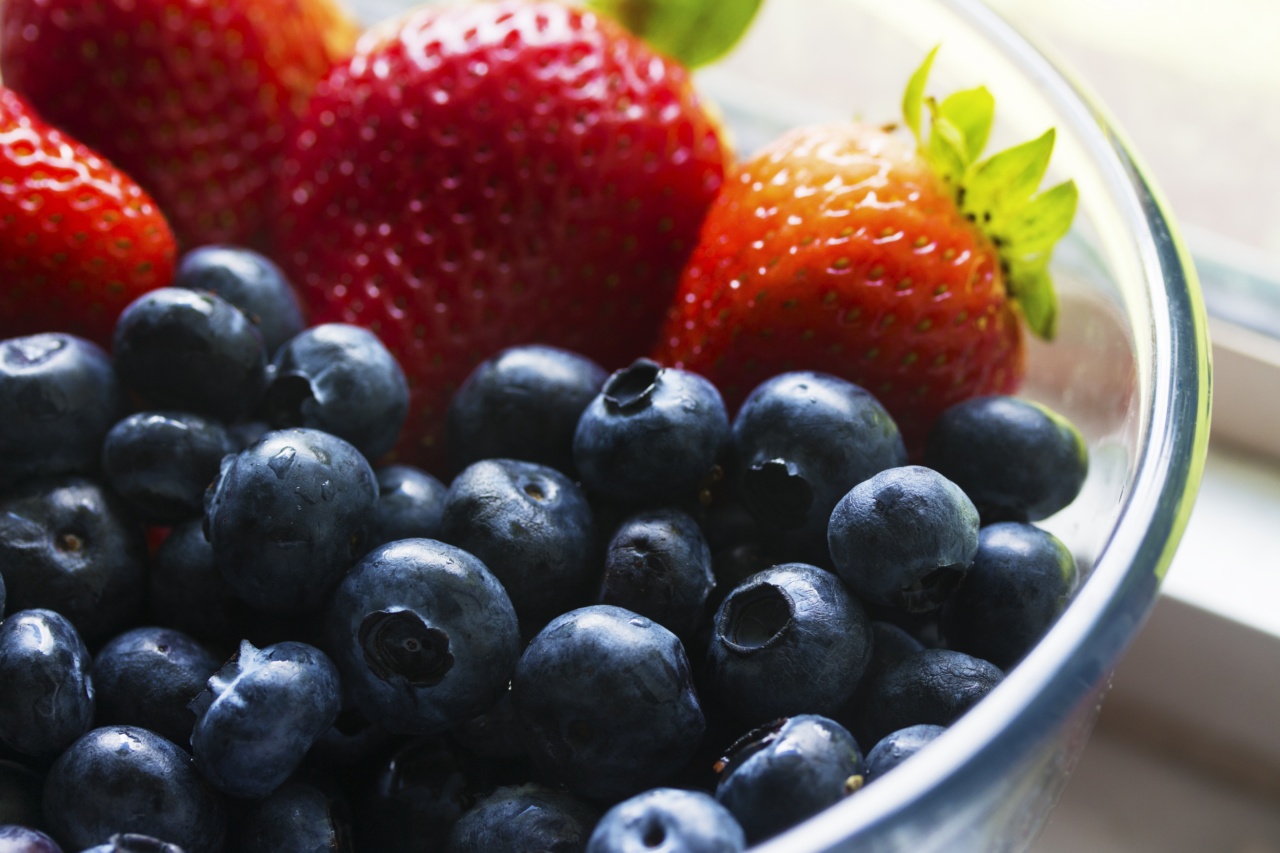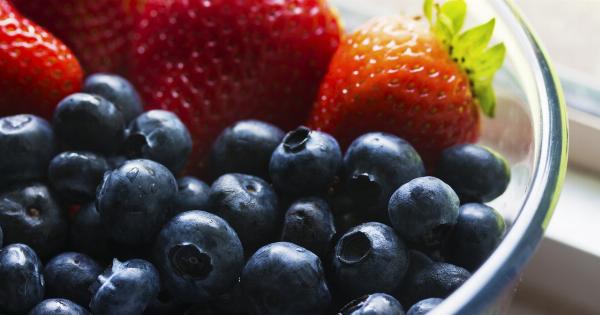Dried fruits are a delicious and convenient snack that can provide numerous health benefits. They are made by removing the water content from fresh fruits, resulting in a concentrated source of essential nutrients.
While dried fruits are generally high in calories due to their natural sugars, they also contain valuable vitamins, minerals, and antioxidants that are crucial for good health. This article will explore the nutritional value of dried fruits and their impact on your overall well-being.
The Benefits of Dried Fruits
Dried fruits offer a wide range of health benefits due to their nutrient content. Here are some of the key advantages of incorporating dried fruits into your diet:.
1. Rich in Fiber
Dried fruits are an excellent source of dietary fiber, which is vital for proper digestion and maintaining a healthy digestive system. Fiber helps regulate bowel movements, prevent constipation, and control blood sugar levels.
Adding dried fruits to your diet can help you meet your daily fiber requirements and support overall gut health.
2. High in Antioxidants
Dried fruits contain a variety of antioxidants, which are compounds that help protect your cells from damage caused by free radicals.
Free radicals are unstable molecules that can contribute to chronic diseases like heart disease, cancer, and premature aging. Antioxidants in dried fruits, such as polyphenols and flavonoids, can help neutralize these harmful molecules and reduce the risk of developing chronic diseases.
3. Good Source of Vitamins and Minerals
Dried fruits are packed with essential vitamins and minerals that are necessary for optimal health. Different dried fruits have varying nutrient profiles, but most contain vitamins like vitamin C, vitamin A, and vitamin K.
They also provide essential minerals such as potassium, magnesium, and iron. Incorporating a variety of dried fruits into your diet allows you to benefit from a diverse range of nutrients.
4. Natural Energy Boost
Dried fruits are a concentrated source of natural sugars, such as glucose and fructose. These sugars provide a quick source of energy, making dried fruits an ideal snack for athletes or individuals needing an energy boost.
However, it’s important to consume them in moderation, especially if you have diabetes or are watching your overall sugar intake.
5. Reduced Risk of Chronic Diseases
The antioxidants, vitamins, and minerals present in dried fruits can contribute to a reduced risk of chronic diseases.
Studies have shown that consuming dried fruits regularly can lower the risk of developing conditions like heart disease, certain types of cancer, and age-related macular degeneration. Including dried fruits as part of a balanced diet can help protect your long-term health.
How to Incorporate Dried Fruits into Your Diet
There are various ways to incorporate dried fruits into your diet and enjoy their health benefits:.
1. Snack on Them Alone
Dried fruits make an excellent portable snack. You can simply carry a small bag of your favorite dried fruits with you for a quick and healthy snack on the go. Be mindful of portion sizes, as dried fruits are calorie-dense.
2. Mix Them with Nuts and Seeds
Create your own trail mix by combining dried fruits with nuts and seeds. This mix provides a good balance of carbohydrates, healthy fats, and proteins, making it an ideal snack for sustained energy throughout the day.
3. Add Them to Baked Goods
Dried fruits can enhance the flavor and nutritional content of baked goods. Add chopped dried fruits like raisins, cranberries, or dates to muffins, bread, or cookies for a tasty and nutritious twist.
4. Sprinkle Them on Salads
Add a touch of sweetness and extra texture to your salads by sprinkling some dried fruits, such as dried cranberries or apricots, on top. They can provide a delicious contrast to the savory flavors of your salad.
5. Use Them in Cooking
Dried fruits can add depth and complexity to savory dishes. Incorporate them into stews, curries, or grain-based dishes for a touch of natural sweetness and a pleasant chewy texture.
Precautions and Considerations
While dried fruits offer numerous health benefits, it’s important to keep a few precautions and considerations in mind:.
1. High in Calories
Dried fruits are calorically dense due to their sugar and fiber content. If you are watching your caloric intake or trying to lose weight, it’s essential to consume dried fruits in moderation and be mindful of portion sizes.
2. Added Sugars
Sometimes, dried fruits may contain added sugars to enhance sweetness or preservation. Check the ingredient list before purchasing dried fruits and opt for varieties with no added sugars or preservatives whenever possible.
3. Choking Hazard for Young Children
Dried fruits can be a choking hazard for young children and toddlers. If giving dried fruits to young children, ensure they are cut into small, age-appropriate pieces to minimize the risk of choking.
Conclusion
Dried fruits are a delicious and nutritious addition to a well-balanced diet. With their high fiber content, rich antioxidant profile, and essential vitamins and minerals, they offer a wide range of health benefits.
However, it’s important to consume them in moderation, mindful of portion sizes, and choose varieties without added sugars. By incorporating dried fruits into your diet, you can boost your overall health and reduce the risk of developing chronic diseases.































